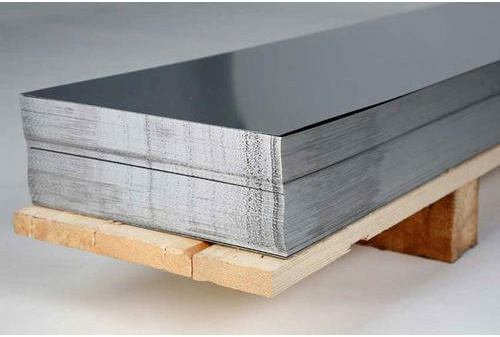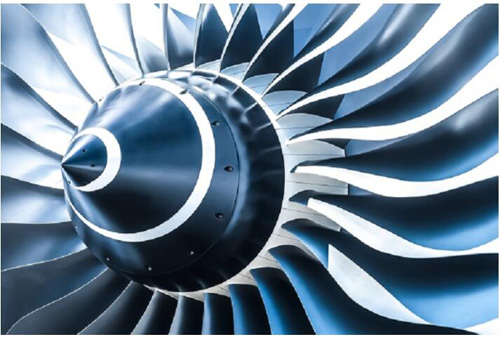Titanium is an important refractory metal. Titanium alloys have low density, high specific strength, good corrosion resistance, low thermal conductivity, non-toxic and non-magnetic, weldable, biocompatible and highly decorative surface. Many countries around the world have recognized the importance of titanium alloy materials. In this article, we will learn about the 6 main uses of titanium.
Reducing fuel consumption and harmful emissions has become one of the main drivers and directions of technological progress in the automotive industry. Studies have shown that for every 10% reduction in vehicle mass, fuel consumption can be reduced by 8-10% and exhaust emissions by 10%.
In terms of driving, the acceleration performance is improved after the vehicle is lightened, and the handling stability, noise and vibration of the whole vehicle are also improved. From the point of view of crash safety, after the car is lightened, the inertia during a crash is small and the braking distance is reduced.
The preferred method to reduce the weight of a car is to replace traditional automotive materials such as steel with high-strength lightweight materials such as aluminum, magnesium and titanium.

In the United States and other Western countries, 60% of titanium materials are used in the aerospace field. However, with the rapid development of aerospace in Asia in recent years, the consumption of titanium in aerospace will increase accordingly. Globally, the aerospace industry plays a pivotal role in the titanium market.
The demand for titanium is higher for new aircraft than for older aircraft. The average demand for titanium for commercial aircraft is expected to reach 40 tons per aircraft in 20 years. Based on this projection, the global demand for titanium in commercial aviation will be about 1.2 million tons in the next 20 years.
In addition, due to the global geopolitical situation, the military spending of countries around the world has increased, and the demand for titanium in military aviation is also expected to see new growth.

Titanium has a wide range of applications in the medical field. Titanium is close to human bones and has good biocompatibility with human tissues, with no toxic side effects. Human implants are special functional materials that are closely related to human life and health.
Compared with other metal materials, the advantages of using titanium and titanium alloys are mainly: light weight, low modulus of elasticity, non-magnetic, non-toxic, corrosion resistant, high strength and good toughness.
The use of titanium alloys in surgical implants is growing at a rate of 5%-7% per year. Hundreds of titanium and titanium alloy metal parts, such as femur, hip, humerus, skull, knee, elbow, shoulder, metacarpophalangeal joint, fastening screws, etc., have been transplanted into the human body and achieved good results.
Titanium has excellent corrosion resistance and is widely used in many sectors of the national economy. Especially in chemical production, titanium is used instead of stainless steel, nickel-based alloys and other rare metals as corrosion-resistant materials.
This is of great significance to improve production, improve product quality, extend equipment life, reduce consumption, reduce energy consumption, reduce costs, prevent pollution, improve labor conditions and increase labor productivity.
Titanium has become one of the main anti-corrosion materials in chemical equipment, establishing his corrosion-resistant status in chemical equipment. Titanium as the ideal material in chemical equipment, but also more and more attention from engineers and technicians.
After years of promotion, titanium and its alloys have been widely used in chemical production as excellent corrosion-resistant structural materials. At present, the application of titanium equipment has been extended from the original soda ash and caustic soda industries to chlorate, ammonium chloride, urea, organic synthesis, dyestuffs, inorganic salts, pesticides, synthetic fibers, fertilizers, fine chemicals and other industries.
With the development of science and technology and the depletion of terrestrial resources, the development and utilization of the ocean by human beings has been put on the agenda.
Titanium has excellent corrosion resistance to seawater and is widely used in seawater desalination, ships, ocean thermal energy development, undersea resource extraction and other fields.
Due to the characteristics of titanium and titanium alloy, they have unique advantages in the application of ships and marine equipment, so they are widely used in nuclear submarines, deep submersibles, atomic energy icebreakers, hydrofoils, hovercraft, minesweepers and propellers, seawater pipes, condensers, heat exchangers, etc.
Titanium is used in sporting goods because of its light weight and high strength. The use of titanium has gradually expanded from the earliest tennis rackets and badminton rackets to golf heads, clubs and racing cars.
Bicycle frames made of titanium are also popular. Currently, nearly 50 companies produce titanium bicycles. The United States has long been the largest producer and consumer of titanium bicycles.
The light weight of titanium is also used in eyeglass frames, and because titanium is not easily allergic to the skin and because its surface can be anodized to give a brilliant color, it has been used in frames since the early 1980s.